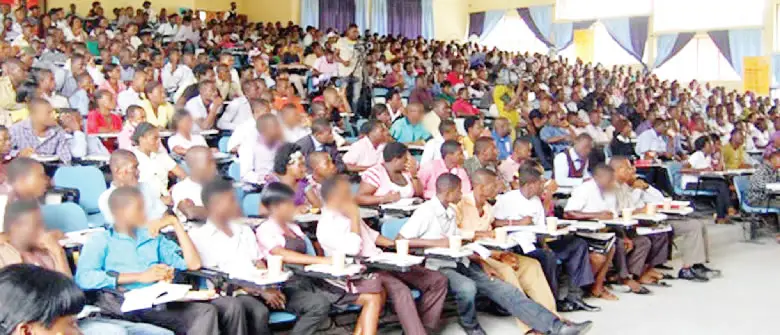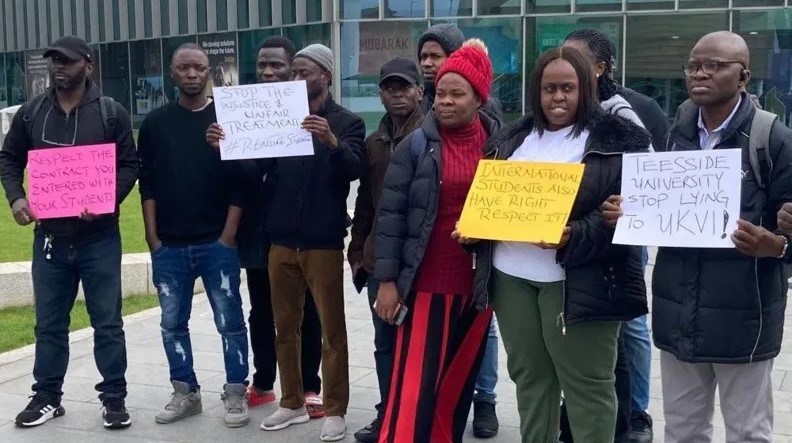ASUU, ASUP criticise student loan scheme, as school fees rise by 200%


The Academic Staff Union of Universities (ASUU) and the Academic Staff Union of Polytechnics (ASUP) have kicked against the Student Loan Scheme introduced by President Bola Tinubu to solve the major challenge facing the education sector in the country.
Tinubu signed the Student Loan Act to Law days after his assumption of office and the move has been greeted with reactions.
Former Speaker of the House of Representatives, Rt Hon. Femi Gbajabiamila, delivered a lecture where he posited that the setting up of the student loan scheme was one of the surest ways to solve the problem of funding education in Nigeria.
He followed it up by sponsoring a bill on the matter in the National Assembly that would help indigent students to fund their education which was signed into law by the President.
Meanwhile, two umbrella bodies of lecturers have criticised the student loan scheme saying that indigent students would be left out.
Speaking on the workability of the law, especially given the high unemployment rate in Nigeria, both ASUU and ASUP opined that the foundation for the scheme to fail has been laid already.
They opined that when repayment becomes impossible, the fund would simply dry up.
The National President of ASUU, Prof. Emmanuel Osodeke, noted, “It is a subtle hike in tuition fees in tertiary institutions. If a student says he cannot afford the fee, he would be referred to go and take the loan.
“We are not talking about how the children of the poor will be able to access it. We know that in Nigeria, things meant for the masses are always hijacked by the rich. After graduation, the children of the rich will get jobs and those of the poor, who may benefit from the scheme, will have no job from which to repay.
“The union will react at appropriately soon, but Nigerians know our stance on the scheme. It may not ultimately benefit the children of the poor and even if it does, it will just put a debt burden on them. Let the cost of governance be reduced and frivolous contracts and spending be done away with and we will have no funds for social services like education and others.”
For the National President of ASUP, Dr Anderson Ezeibe, “The law downs not take cognisance of the economic realities and situation in the country. The foundation for the scheme to fail has been laid.
“The unemployment rate in Nigeria, which I learnt is over 30% is one of the highest and under such conditions, the scheme won’t be sustainable. It is a funny way of introducing tuition fees and taking away education from the children of the poor that they claim to support.
“It is like the proponents of the law don’t live in Nigeria. Let them take a look at the situation on the ground and do something that will reflect the realities on the ground. Who is deceiving whom? If beneficiaries don’t secure employment after graduation and you expect them to begin repayment, the scheme will crash.
“Officially, tuition is free, but institutions have hike service charges like Acceptance fees, ID card Fees, Hostel Fees among others. A student who complains of inability to pay would just be asked to go to seek a student loan. Government should just convene a meeting of stakeholders and experts and people will chip in ideas on how to fund education and even free funds from frivolous sectors.”
Hike in service charges
Meanwhile, many tertiary institutions in the country have hiked service charges such as Acceptance Fee, and Hostel Fee among others. An investigation by our correspondent has shown.
For instance, at the University of Ibadan, UI, the Acceptance Fee has been jerked up from N37,000 to N50,000. The same at the Federal University of Technology, Akure, FUTA, where the fee has been raised to N50,000 from N20,000. While new students are to pay N108,000 up from about N50,000 paid before.
At the University of Maiduguri, new students are to pay N252, 000, instead of N131,500. The University of Uyo is asking students to pay N107,750. Even at The Polytechnic, Ibadan, students who are not staying in the hostels even had Hostel Fee to pay, it has been increased from N5,000 to N15,000.






